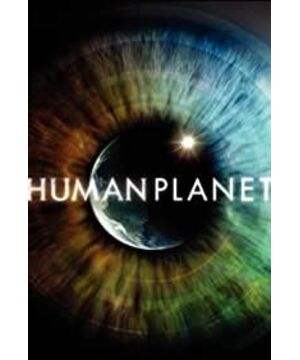Over a long period of time, our activities in the grasslands have changed the landscape, but this is no easy task. Humans racked their brains and mustered their courage to become the leaders of the grasslands. Our ability to harness the grasslands is getting stronger and stronger, we have these large artificial grasslands, transforming mountains, clearing forests, and redesigning the surface of our planet. These seem to be the great successes we humans have achieved, but these actions remind me of the saying, "To catch a fish to eat because you are hungry is survival, but to catch 1,000 fish is greed." Living in the so-called We of material civilization seem to occupy a lot, but in fact, the more we occupy, the less we can see. Is that lucky or unfortunate?
The most primitive way of living, getting what you need from the grassland, not being greedy, and following the laws of the grassland, this is probably the part that shocked me the most. Although I felt cruel when the lion fell on the little zebra and the little wildebeest; people caught a lot of snakes and traded, which made me think we were selfish; arsoning the queria finch made me feel that human beings are violent and ruthless; In the competition of the Suri people, I think they are barbaric... But the people of these ancient tribes have passed down the life experience accumulated over hundreds of years from generation to generation, and also inherited their fear and respect for their homeland, nature and the earth.
In terms of audio-visual language, this BBC documentary is very well made. What impressed me the most was the exquisiteness of the picture and the perfect combination with sound and music. Here are just a few pictures that impressed me. The film begins with a piece of grass as the foreground, two figures walking forward, from blurry to clear, and then one hand stroking the grass, moving forward slowly, I understand it as the existing grassland, the grassland nurtures human beings , make them tight and clear, and then people rely on the grasslands and slowly move forward. The picture is beautiful in shape, contains deep meaning, and the narrator's voice with a slightly mysterious and vicissitudes of life, giving people a feeling of eloquence. There is also the picture of the group of Quilliard finches when they arrive. First, the leading troops fly in the sunset, and you can roughly see the appearance of the finches. They pass through the sunset, fly out from the woods, and then are densely packed. One piece, a big vision, I saw groups of black dots moving and changing shapes, giving people a lot of feeling, and even hairs, which were first loosened and then tightened, giving a visual impact. In terms of background music, the selection of music for each picture is also very elegant. For example, in Kenya's story of cheating wildebeest from a lion, the music used creates a kind of tense and fierce music. I guess it is an African kind of music. The slapping musical instrument is similar to a drum. With the change of the picture, the frequency of the slapping also changes constantly. When a lion hunts a zebra, it accelerates to create an atmosphere of fierce killing, and sometimes weakens to create a tense and approaching atmosphere; it is like catching a mother in Inner Mongolia. In the horse part, the music of catching the mare, the ensemble of various musical instruments, the rhythmically strong tones, the intense and intense, accompanied by the sound of the hooves of the horses running, is shocking.
View more about Human Planet reviews









